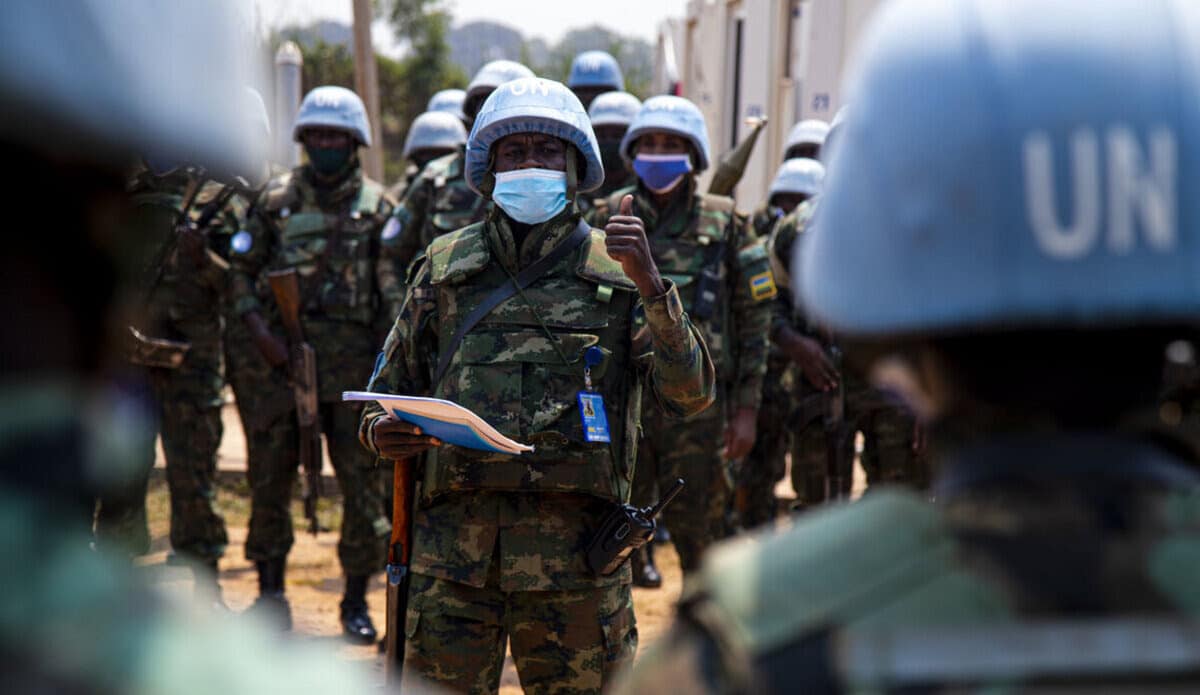The conflict-stricken Central African Republic (CAR) has been struggling to forge a lasting peace since 2013. The deployment back in 2014 of the United Nations Multidimensional Integrated Stabilisation Mission in the Central African Republic (MINUSCA) has not brought any tangible results.
The key mission of MINUSCA’s mandate is the protection of the civilian population. The approved budget for MINUSCA for 2020-2021 is $1,006,428,200, but for 7 years the Mission has demonstrably failed either to ensure political stability, reform the security sector or restore state authority to the country.
Recently, local media has started to become increasingly vocal in their criticism, alleging that some MINUSCA contingents have infiltrated the local criminal environment. Because of their status, the troops enjoy UN immunity which facilitates their ability to conduct illegal trade in weapons, medicines and other imported goods. The investigative newspaper Le Citoyen wrote on May 11 that the Bangladeshi contingent of MINUSCA has been accused of selling weapons and ammunition to militant groups. This report has been independently substantiated by reliable military sources with direct knowledge of the situation. The allegation is that the Bangladeshi contingent deployed in Bouar has supplied rebels with Belgian-made mines intended for planting on roads leading to the gold and diamond mines.
Social media networks have begun to circulate video materials, produced by Le Confident and La Gazette du Matin, and other media which allege to illustrate the degree of cooperation between UN soldiers and armed groups of bandit fighters.
The CAR is currently under an arms embargo imposed by the UN, which means that any supplies to armed rebel groups could give them an important advantage over government forces.
The CAR Government is obliged to comply with the rules set by the UN, as they are bound to a commitment to transparency and the legality of all process in the country. The CAR government has so far carefully adhered to the UN rules in the hope that after the CAR restores and reforms its Defense Forces, a future total lift of the embargo will give the Republic the opportunity to protect its civilian population independently. Even though the reformed national army has shown its high quality during the pre-and post-election armed conflicts in 2020-21, the UN Security Council has been slow to lift the embargo. It seems that the efforts of the Central African government are not given due recognition. Could it be that the poor supply of arms to the national defence forces presents a business opportunity when it comes to supplying the rebel forces?
By supplying the armed groups with weapons, food and medicine, the UN forces contribute to the continuation of violent conflict in the Central African Republic, which guarantees the prolongation of the MINUSCA mandate of this territory rich in gold and diamonds. But in the wake of the recent success of the reformed Central African national army, the strategy of the UN forces has come under greater scrutiny.
The national army of the CAR has recently accused MINUSCA forces of acting more aggressively on the ground and seeking to provoke confrontation.
MINUSCA has been fined by the CAR Customs authorities for the illegal import of car parts. Customs officials allege that MINUSCA does not declare all goods imported into the territory of the CAR, claiming an exemption by virtue of their status. The traditionally porous African borders combined with UN immunity provide a tempting opportunity for illicit trafficking. MINUSCA has recently redeployed troops to the distant regions of the CAR, seen generally as a tactical move to give them better access to illicit trafficking routes.

In Bossangoa, a mining town in the north of the CAR, citizens have seen that UN peacekeepers are major buyers of gold and diamonds. Bossangoa is not an area authorised for mining under the Kimberley Process. This means that it is illegal to buy diamonds and gold there.
But who do the UN troops buy the diamonds from and what do they give in return? According to reliable reports, the illegally mined diamonds are used as payment to MINUSCA for the goods they supply to armed rebel groups.
The cover for the goods trafficking provided by the UN status does not only apply to shadow imports, but to exports as well. In March 2021, a UN armoured truck full of cobalt, mined in the distant regions of the CAR, overturned on a Central African road spilling its illegal cargo.
Regions rich in natural resources have always been attractive to armed groups, as they can provide revenues to fund new equipment and ammunition needed to fight the national army and other armed groups.
Western leaders constantly call for an end to the cruel cycle of violence in Africa. The first step should be to stop manipulating African states, stop taking advantage of the unstable security environment and leave young African states in peace.
 UK PoliticsWorld PoliticsVideosPrivacy PolicyTerms And Conditions
UK PoliticsWorld PoliticsVideosPrivacy PolicyTerms And Conditions
